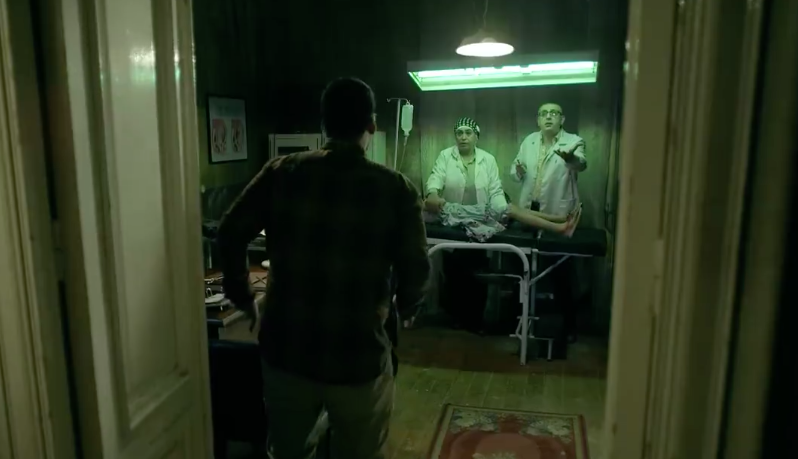Police have arrested four people after a 12-year-old girl died when a doctor performed a female genital mutilation (FGM) procedure on her.
Nada Hassan Abdel-Maqsoud was taken by her parents, uncle and aunt to a private clinic in Manflout, located in the Upper Egyptian governorate of Assiut, for an FGM procedure which resulted in her death.
The 12-year-old’s parents, aunt and the doctor who carried out the procedure have all been detained pending investigation. It is unclear whether Nada’s uncle will also be detained.
What happened?
A forensic investigation revealed that the FGM procedure carried out on Nada was done so without anesthesia and by a 70-year-old doctor who was not qualified as a surgeon, reported Youm7.
During questioning, the doctor, identified only as ‘Ali A.A’, admitted that no nurses, anesthesiologist or other staff at the clinic were involved and that Nada’s mother and aunt watched the procedure from start to finish.
The doctor said that Nada’s family had requested a ‘plastic surgery’ operation on Nada’s female genital organs. The doctor added that during the operation, Nada started bleeding profusely and that he was unable to stop the bleeding.
Statements from the doctor that he had been requested to carry out a ‘plastic surgery’ operation on a 12-year-old have been dismissed as lies by public prosecutors and Nada’s family.
During questioning by public prosecutors, Nada’s parents and aunt admitted to taking Nada to to the clinic to undergo an FGM procedure and not any form of plastic surgery.
Nada’s death stirred outrage in Egypt, with women’s rights groups calling for swift action against all those responsible.
Is FGM illegal in Egypt?
FGM continues to be a widespread practice in Egypt, despite being banned and criminalized in 2008.
According to the 2015 Egypt Health Issues Survey (EHIS), around 9 in 10 women aged 15-49 have undergone the procedure.
However, the Egyptian government has taken significant steps to curb FGM, carrying out educational campaigns across Egypt’s governorates. A study carried out after the EHIS by the United Nations Development Programme (UNDP) and Egyptian authorities and published in 2016 revealed that FGM conducted on girls between 15 and 17 dropped from 74 percent in 2008 to 61 percent in 2014.
In September 2016, following a number of high-profile cases, Egyptian President Abdel Fattah Al-Sisi approved a new law imposing longer prison sentences and harsher punishments for the practice of FGM.
Jail time for those who carry out the outlawed procedure increased to a minimum of five years and a maximum of seven years. Previous legislation had stipulated that the punishment for performing FGM would be a prison sentence ranging from three months to two years and a fine of EGP 5,000.
Additionally, the law introduced in 2016 holds all those who submit girls for an FGM procedure accountable, stipulating a punishment ranging from no less than one year and no more than three years.
The First Egyptian Doctor to be Brought to Trial

The 2016 law came after outrage following the death of 13-year-old girl Soheir Al-Bataa in June 2013. Raslan Fadl, the doctor who carried out the procedure which killed Soheir, became the first Egyptian doctor to be brought to trial and convicted for FGM.
In January 2015, Fadl was sentenced to two years in prison with hard labor for manslaughter and three months or performing the banned practice and killing the 13-year-old during the procedure.
However, in December of that year, two separate reports from National Public Radio (NPR) and Vice claimed that Fadl was continuing to practice medicine in his village in Mansoura. The reports claimed that police forces said Fadl was a ‘fugitive’ and that they were unable to track him down.
An undercover reporter from VICE News visited Fadl at his private clinic and inquired about the procedure. The convicted doctor said there would be “no problem” with performing the procedure but also said he is attempting to sue the government for outlawing FGM.
It wasn’t until early 2016, that an Egyptian court revoked Fadl’s licence. In July 2016, Fadl was arrested by police forces and imprisoned to carry out his prison sentence.
The case prompted the Egyptian Parliament to review FGM laws amid pressure from everyday Egyptians and particularly women’s rights groups in Egypt.







Comments (16)
[…] to an investigation reported by local media, the procedure was performed without anaesthesia and the 70-year-old doctor who carried out the […]
[…] to an investigation reported by local media, the procedure was performed without anaesthesia and the 70-year-old doctor who carried out the […]